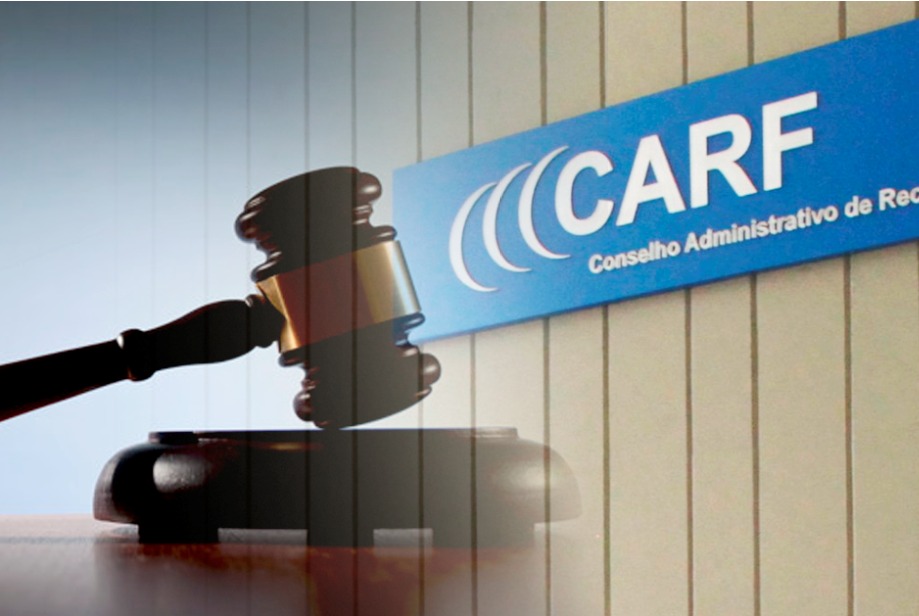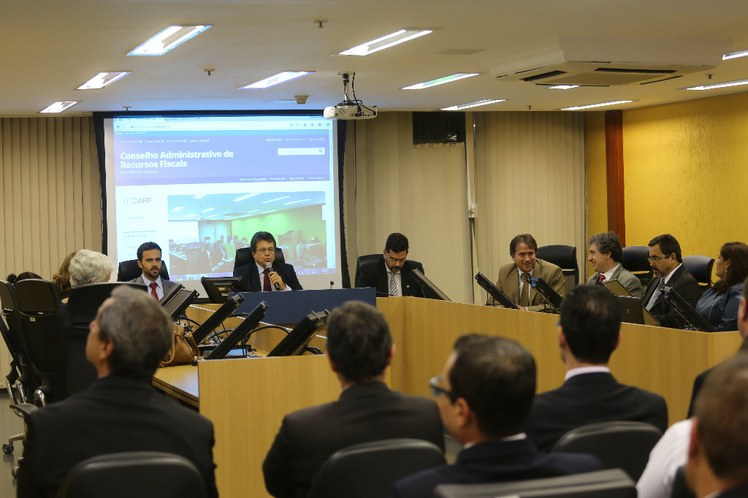
Visa exemptions for certain nationalities rei...
read more

In a plenary session last August in Brasilia, the Conselho Administrativo de Recursos Fiscais – CARF (Administrative Council of Tax Appeals) met to deliberate on 43 drafts of proposals for “súmulas” (abridgements with binding effect) to rule over tax appeals pending consideration by that administrative body of second degree of jurisdiction. The objective is to bring to society, through standardisation of jurisprudence, legal certainty in the tax area, reducing litigation.
One of the 26 proposals approved by the majority of CARF counsellors, Abridgement n° 185, aimed to resolve the standing of the shipping agent as liable for a foreign carrier’s untimely logging – or failure to provide –information about the vessel and cargo in the manner and within the deadlines established by the customs regulations. Data of interest to the customs authority are logged on the SISCOMEX CARGA (SISCARGA) system; hence, the resulting customs penalties are generally known as “SISCARGA fines”, typically fixed at BRL 5,000 per bill of lading.
CARF Abridgement 185 in respect of SISCARGA fines reads as follows:
“O Agente Marítimo, enquanto representante do transportador estrangeiro no País, é sujeito passivo da multa descrita no artigo 107, inciso IV, alínea “e” do Decreto Lei 37/66″
“As a representative of the foreign carrier in the Country, the Shipping Agent is liable for the fine described in article 107, section IV, item “e” of Decree-Law 37/66″ (Free translation)
On a bright note, CARF counsellors unanimously approved the Abridgement n° 186, deciding that rectification of information on time does not constitute an administrative infraction under the terms of the referred legislation. Therefore, there should not be a fine for data correction in SISCARGA, provided it is carried out within the regulatory time limits.
Abridgement 185 was met with great disappointment among the shipping community. It was seen as a missed opportunity to resolve a long-standing dispute that overburdens the CARF and, ultimately, the federal court system. As the decision is binding only at the administrative level, its legality is expected to be extensively challenged before the courts. The súmula ended up producing the opposite effect.
The doctrinal and jurisprudential position on the matter largely favours the thesis of the agent’s lack of standing to be sued in the stead of its principals. The understanding is to the effect that the shipping agent cannot be jointly and severally liable for tax liabilities arising from non-compliance with the duties the law confers on the shipowner/carrier for whom it works merely as an agent. The mandatary nature of the agent’s relationship does not include its assumption of responsibilities for obligations that must be legally fulfilled by its principals (lack of causality).
In 2010, the Federal Attorney General’s Office (Advocacia-Geral da União – AGU) issued Abridgement AGU n° 50 ruling that “The shipping agent shall not be held liable for sanitary or administrative infractions committed aboard vessels.” (Free translation). Still, it did not help persuade CARF counsellors to drop the fines.
In a very recent decision (August 2021) concerning a subrogated cargo claim filed against the vessel’s agent (Special Appeal REsp 1504348-SP), the Superior Court of Justice – STJ decided that “in the sense that the shipping agent, a specific figure of maritime law, acts specifically as the shipowner’s mandatary commercial agent (mandator and owner of the vessel), it cannot be held liable for damages caused by acts performed by order of the shipowner, when within the limits of the mandate“. (Free translation).
In the same direction as the STJ, Federal Regional Courts (TRF) have consistently held that “[…] the shipping agent is not to be confused with the shipowner, on the contrary, it is a mere provider of auxiliary services to oceangoing vessels when they are anchored in the port area, and it is not appropriate to hold the agent liable for administrative breach of an obligation imposed on the carrier (shipowner). Therefore, the causal link is absent” (TRF5 – AC 507740/AL). (Free translation)
In the administrative sphere, the Brazilian Navy’s Directorate of Ports and Coasts – DPC, through Letter n° 20-695/DPC-MB, clarified that shipping agents could not be indicted or held accountable for violation of legislation, but rather the shipowners or the shipmasters themselves.
Given the legal uncertainty aggravated by Abridgement 185 – and other similar decisions rendered by the CARF –, which imposes onerous terms on the shipping agents, stakeholders in the shipping industry have been challenging the agent’s passive legitimacy (standing to be sued) before the higher courts.
As an example, in 2015, the National Transport Confederation (CNT), with the Brazilian Association of Maritime Law (ABDM) acting as amicus curiae, filed a Direct Unconstitutionality Action (ADI 5431) before the Federal Supreme Court (STF). While ADI 5431 addresses the consequences brought by another article of Law 37/66, this lawsuit has the broader objective of clarifying the confusion generated by the binomial representativeness x responsibility. Hopefully, the Supreme Court will settle whether the agent should be equated to the carrier’s legal representative.

Until the higher courts settle the issue once and for all, the market will eventually reach equilibrium with new business practices. Meanwhile, more than ever, local agents will receive notices of infractions committed by vessels/shipowners whom they attended only as shipping agents. In addition to paying the fine and trying to recover the money from their principals, agents’ only option is to seek legal remedy. This course of action would involve depositing the penalty in escrow, incurring reasonable lawyer’s fees and legal costs, and waiting years until a final court decision.
Please read our disclaimer.
Related topics:
Rua Barão de Cotegipe, 443 - Sala 610 - 96200-290 - Rio Grande/RS - Brazil
Telephone +55 53 3233 1500
proinde.riogrande@proinde.com.br
Rua Itororó, 3 - 3rd floor
11010-071 - Santos, SP - Brazil
Telephone +55 13 4009 9550
proinde@proinde.com.br
Av. Rio Branco, 45 - sala 2402
20090-003 - Rio de Janeiro, RJ - Brazil
Telephone +55 21 2253 6145
proinde.rio@proinde.com.br
Rua Professor Elpidio Pimentel, 320 sala 401 - 29065-060 – Vitoria, ES – Brazil
Telephone: +55 27 3337 1178
proinde.vitoria@proinde.com.br
Rua Miguel Calmon, 19 - sala 702 - 40015-010 – Salvador, BA – Brazil
Telephone: +55 71 3242 3384
proinde.salvador@proinde.com.br
Av. Visconde de Jequitinhonha, 209 - sala 402 - 51021-190 - Recife, PE - Brazil
Telephone +55 81 3328 6414
proinde.recife@proinde.com.br
Rua Osvaldo Cruz, 01, Sala 1408
60125-150 – Fortaleza-CE – Brazil
Telephone +55 85 3099 4068
proinde.fortaleza@proinde.com.br
Tv. Joaquim Furtado, Quadra 314, Lote 01, Sala 206 - 68447-000 – Barcarena, PA – Brazil
Telephone +55 91 99393 4252
proinde.belem@proinde.com.br
Av. Dr. Theomario Pinto da Costa, 811 - sala 204 - 69050-055 - Manaus, AM - Brazil
Telephone +55 92 3307-0653
proinde.manaus@proinde.com.br
Rua dos Azulões, Sala 111 - Edifício Office Tower - 65075-060 - São Luis, MA - Brazil
Telephone +55 98 99101-2939
proinde.belem@proinde.com.br